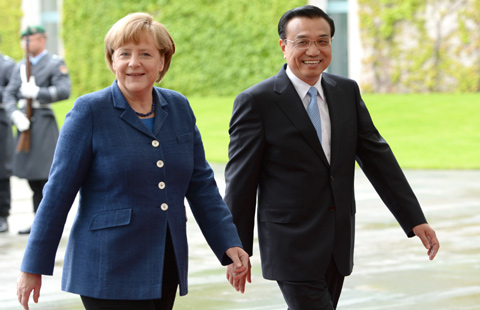Germany's link to China
The German port city of Hamburg is considered to be a gateway between China and Europe for trade and commerce, business, science and technology, arts and culture, and education.
Trade relations date to 1731, when the first ship arrived in Hamburg from Guangdong province with tea, silk and porcelain. In the past, a small Chinatown existed in the port area of St. Pauli, but it was erased during Nazi rule and World War II.
With the boom in the shipping container industry and reform and opening-up in China, Hamburg's port became the epicenter of Chinese trade with northern Europe and Scandinavia.
Today more than half of German goods destined for China go through the port of Hamburg. China has been Hamburg's largest trading partner for years, with about 2.7 million TEUs (container units) moved annually. China represents more than 30 percent of the total turnover in the port of Hamburg and trade was valued at 10 billion euros ($12.6 billion) last year.
More than 500 Chinese companies operate in Hamburg, including major headquarters for shipping companies like ZPMC, Sinotrans, and industrial companies like Sinosteel.
Over many years, the relationship between Hamburg and China has deepened and led to the creation of the German Asia-Pacific Business Association, the German Institute for Global Area Studies, and the Department for Chinese Language, which was established in 1909 and was the birthplace of Sinology in Germany. It has become part of the Department for Chinese Language and Culture of the University of Hamburg.
Laura Davis contributed to this story.
(China Daily European Weekly 10/10/2014 page8)
Background







